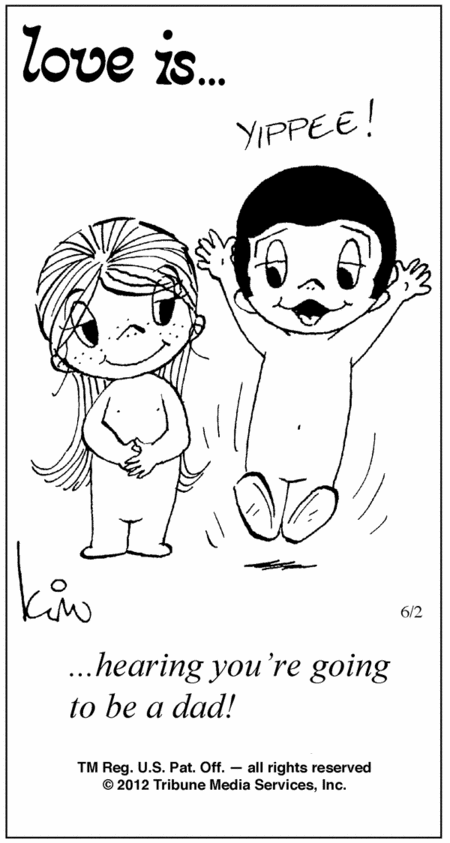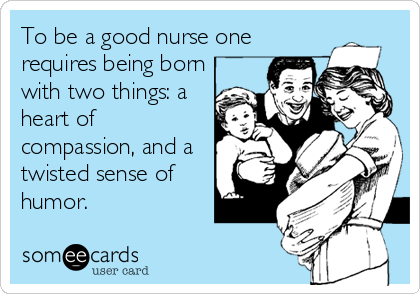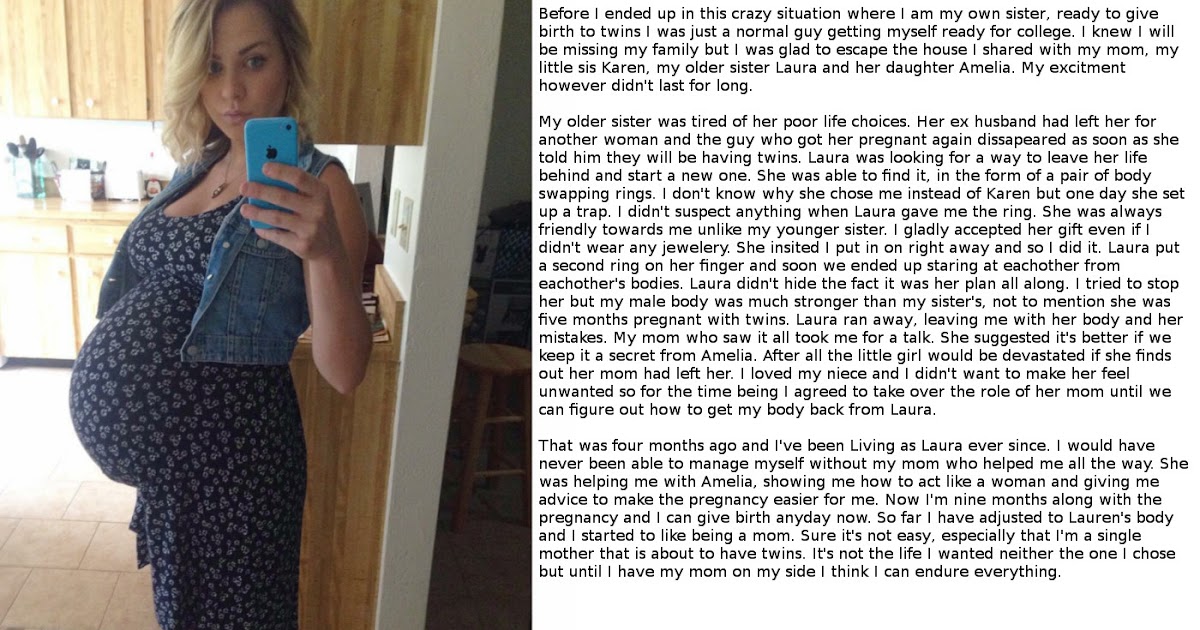Your going to be a dad
Fun Ways to Announce, "You're Going to Be a Dad!"
There are affiliate links in many of the posts on this site. This means your purchase supports myself, my business, and my family when you click through to buy - at no additional cost to you. This site also uses cookies. You can learn more here. Thank you!
When I first found out I was pregnant, my husband and I were living apart short-term. He was teaching drivers’ education in a town about four hours away, and we didn’t have plans to see each other for 10 days. I had to make a hard decision – tell him right away and miss seeing his reaction in person OR wait to tell him in person and get to see his reaction. {Unfortunately going to see him right away was NOT an option 🙁 }
Right or wrong – I decided to wait. So then I had some extra time on my hands to come up with a neat way to tell him, “You’re going to be a dad!”
This blog post contains affiliate links. You can read my entire disclosure policy here.
I did something simple and easy. I bought this I <3 Daddy picture frame and put the date of our little bundles expected arrival, and I bought him this book. While definitely not the best idea I’ve ever had, it served it’s purpose well and didn’t break the bank.
I’m not for a moment saying that my idea was the most unique or original, but it was still fun. Since we are thinking about adding #2, I thought it would be fun to research some other fun ideas that I might be able to use to tell him you’re going to be a dad a second time. Here are a few more that may help you out!
26 Ways to Say “You’re Going to Be a Dad!”
- Give a gift. This one is sooo open ended!
- If your husband is a sports fanatic, get him a baby jersey to his favorite team.
- If your husband loves to read, gift him a book. (This is the one Andrew received the first go round.)
- Does he love beer? Buy one of these stickers and put it on his favorite beer.
- You can also get him a simple shirt that says “only the best husbands get promoted to daddy”.
 Here’s a link for one.
Here’s a link for one. - Not a drinker? No worries! Get him some dad’s root beer!
- Plan your announcement around a holiday, if possible. Around Halloween, make a jack-o-lantern that looks like this. St. Patrick’s Day? Tell him he’s so lucky! Easter eggs for springtime. You get the idea…
- Get your pet involved! Include a note or ribbon around Fido’s collar so he can go tell the man of the house!
- If this is your first pregnancy, stock up on pickles and ice cream. See how long it takes your man to notice. If this is pregnancy #2 or beyond, stock up on the foods you craved most last time and wait for your man’s reactions.
- Love photoshop? Take a picture of yourself with your shadow being the main focus. Photoshop your bump into the shadow and gift to your hubby.
- Tell him you’ve got a bun in the oven. See if he walks to the oven to get it out or if he gets it right away. (Cheesy? Yes, but I can totally see myself doing this! 😉 )
- Worried about the weight gain? Let hubby know he’s got to get in on the fun with this free printable!
- Leave the pregnancy test somewhere that he’ll obviously see it.
 See how long it takes and what he says.
See how long it takes and what he says. - If you’d rather not play the waiting game, wrap the pregnancy test up and give it to him to open.
- Make him a homemade card telling him he’s going to be a daddy. It might say, “The only thing better than having you for a husband” on the outside…and “is having you be the father of our baby!” on the inside.
- Write him a love letter that ends with you announcing your pregnancy.
- Put your pajamas on, but make it one of his shirts. When he notices, tell him that you just need something a bit bigger than normal. 😉
- Go on a mini shopping spree for the baby. Leave all the items out for him to find.
- Buy one pair of baby shoes and put them on top of the shoes he typically wears. Wait for his reaction.
- Dress your older child in a shirt that says “big sister” or “big brother”.
- Feeling artsy? Draw him a family portrait. (Anyone – myself included – could do this one!)
- Tell your man you’ve got a special supper planned.
 If he asks the occasion, just say it’s because you love him so much. Then create a feast of “baby” foods – baby carrots, baby potatoes, lamb chops, etc. Partway through dinner, you can ask if he knows why you cooked this particular meal.
If he asks the occasion, just say it’s because you love him so much. Then create a feast of “baby” foods – baby carrots, baby potatoes, lamb chops, etc. Partway through dinner, you can ask if he knows why you cooked this particular meal. - If cooking a full scale “baby” meals sounds like too much work, just leave out the jar of Prego when you make a spaghetti supper. See if he catches on. 😉
- Maybe sweets are more your thing. Decorate or have a cake made that says, “Thanks for knocking me up.” Or include a note with some cookies that says, “Eat up, mom can’t be the only one with a belly.”
- Want to make sure he’s caught on by the end of the meal? Get this “we’re pregnant” plate or create your own using this tutorial.
- Love playing games? Play a game of Scrabble and make it your goal to include every pregnancy related word their is – happy, swollen, baby, pregnant, etc.
- Plan a sexy evening for your husband. Draw little baby footprints on your belly and see how long it takes for him to notice.

- If your man is an avid coffee drinker, get him this new mug. See what his reaction is when he finishes his next cup of joe. 🙂
- Want to catch his reaction on camera? Check out this idea where you hire a photographer, or this cool idea involves a photo booth – so it’d be a bit more budget friendly.
- Let him know you’re excited for your newest tax deduction! When he asks what it is, tell him.
- Find something personalized to you. Andrew and I have a lot of leaving each other sticky notes randomly. I might just place one on his bathroom mirror or somewhere else where he’s sure to eventually see it. Simple and sweet!
I’m sure I’ll be able to use one of these ways to tell Andrew “You’re going to be a dad!” the next time I need to, and I hope it helps all of you out as well.
Now that you’ve got a little one on the way, are you thinking about taking a prenatal class? This one is available from the comfort of your own home! If you’re not ready to take the plunge and buy a course just yet, then check out this FREE mini prenatal class!
Being a dad | Pregnancy Birth and Baby
Being a dad | Pregnancy Birth and Baby beginning of content5-minute read
Listen
Becoming a father is one of the most important and fulfilling jobs you will have in your life. Being a loving, involved dad is the best thing you can do for your child.
Being a loving, involved dad is the best thing you can do for your child.
Some aspects of this page focus on men who are becoming fathers in a heterosexual relationship. You can find more specific information for same sex parents in this article.
The importance of fathers
Children have a unique relationship with their parents. Fathers these days generally do a lot more than men did in previous generations. Being involved from early on is better for your relationship and for your baby.
Research has shown that fathers play a crucial role in their children’s emotional, social, physical and brain development. The type of father you are when they’re little will influence them right through to their adult life.
Children need close, stable relationships with both parents. They do better when fathers spend time with them and interact with them in a positive way. Fathers can help their child’s development through play, by being a good role model, and by being warm, loving and engaged.
Even if you’re not the biological father of a child, being a father figure who gives them love, support and involvement will benefit the child.
What will it mean for me?
Finding out you’re going to be a dad can be an incredibly happy and exciting time, but it can be daunting too.
Many dads-to-be find they are confused and worried. You might be concerned about providing for your family, how you’re going to balance your work, social life and a baby, and how you’re going to be the best father you can be — especially if you’d like to do things differently from your own father.
Some things in your life will change. Instead of going out whenever you like, you may need to start negotiating time off with your partner. You might feel like the world revolves around your partner and the baby at first, and you may have to lay off sex for a while. All of this can be worked out if you and your partner discuss your needs and feelings honestly and openly.
Many men aren’t used to asking for help and advice, but now is the time to seek support if you need it. Remember, you and your partner are in this together. Working as a team and being prepared for the changes ahead will give you the best start possible.
Remember, you and your partner are in this together. Working as a team and being prepared for the changes ahead will give you the best start possible.
During the pregnancy
You can start preparing for your role as a father during the pregnancy. It helps if you can be as involved as possible, for example, by talking to your partner about the birth options, going to appointments and attending antenatal classes.
For many men, the pregnancy doesn’t become ‘real’ until the third trimester. Now is the time to plan for how you will manage work, book parental leave, and make changes to your lifestyle like cutting back on drinking or quitting smoking if you haven’t already.
You can also make plans for the future. What sort of father will you be? What special times will you have with your child? Imagine yourself taking them on an outing such as a sporting event, teaching them music or playing games with them.
When the baby is born
You might feel overwhelmed when you first see your baby — but remember, you can do this. Learn how to do everything along with your partner – how to dress, bathe, change nappies and settle the baby. Try not to give the baby back to mum every time they cry. You’re a parent too, and the more you practise, the better you’ll get.
Learn how to do everything along with your partner – how to dress, bathe, change nappies and settle the baby. Try not to give the baby back to mum every time they cry. You’re a parent too, and the more you practise, the better you’ll get.
If your partner is breastfeeding, there are plenty of ways in which you can be involved in your baby’s care. Spending as much time as possible with your baby will strengthen your bond and give your partner a break. Talking and singing to your baby, playing with them and having fun are all important for their development from the moment they are born.
Depression and anxiety in fathers
Dads can get postnatal depression too — in fact, up to 1 in 10 men experiences postnatal anxiety or depression when a baby is born. It’s a medical condition and it can be treated.
If you are feeling very tired, irritable or angry, you feel overwhelmed or that you can’t cope, it’s very important to talk to your doctor. It can take courage to seek help, but it’s the best thing you can do for your family.
Where to go for help and advice
If you’re feeling depressed or anxious, or feeling like you might hurt yourself or your baby, call the PANDA Helpline on 1300 726 306 (Mon to Fri, 9am – 7.30pm AEST) or Lifeline on 13 11 14 (24 hours a day, 7 days a week).
Mensline offer support and counselling services on 1300 78 99 78.
Beyond Blue offer support and advice for new dads on 1300 22 4636. You can download their book, Emotional health and wellbeing: A guide for new dads, partners and other carers.
Rainbow Families and Gay Dads Australia have resources for sexually and gender-diverse families.
QLife offers anonymous peer support and referral for the sexually and gender-diverse community — call 1800 184 527 or access their webchat from 3pm to midnight every day.
Call Pregnancy, Birth and Baby on 1800 882 436 to speak with a maternal child health nurse.
Sources:
Mensline Australia (First time dad), PANDA (Info & support for new dads), Raising Children (Becoming a dad adjusting to fatherhood), Raising Children (Thinking about being a dad in pregnancy), The Fathering Project (How fathers and father figures can shape child health and wellbeing)Learn more here about the development and quality assurance of healthdirect content.
Last reviewed: November 2020
Back To Top
Related pages
- Parental anxiety in the toddler years
- Anxiety and parenthood
- Fathers and depression
- A dad's guide to breastfeeding
- Being a parent
Need more information?
Becoming a Dad
Welcome to your ‘new normal’. There’s a lot to think about when you’re a new dad and as you adjust to fatherhood you need to look after your baby, yourself and your relationship. The role of being a dad is changing, dads are much more involved and this might be very different to your own childhood.
Read more on Karitane website
Being a young father | MensLine Australia
We spoke with Win from '2 DADS' about what it was like to become a father at 17 years old, & the wisdom he’s learnt along the way.
Read more on MensLine Australia website
Support for Dad
Information and support for expectant and new dads Parenthood can be a wonderful and special time, but it also has its challenges
Read more on Gidget Foundation Australia website
I'm going to be a dad - Ngala
For expectant dads this is a time of great excitement and change
Read more on Ngala website
A dad's guide to breastfeeding
What dads need to know about breastfeeding and how you can best support your partner during this time.
Read more on Pregnancy, Birth & Baby website
Tips for Dads | Tresillian
It takes a team to raise a baby and the best way to support your baby’s development is to get involved. Here are some tips for new dads who are unsure of what to expect.
Here are some tips for new dads who are unsure of what to expect.
Read more on Tresillian website
How to get ready to be a dad
Here is what you need to know about how to get ready to be a dad and give your baby the best start in life.
Read more on Your Fertility website
New dad: The first few weeks after the birth
Pregnancy After Childbirth Fathers Baby New Parents New dad: The first few weeks after the birth ( 6 votes, average: 5
Read more on Parenthub website
7 Types of Dad | Support For Fathers
7 Types of Dad. Support For Fathers, Fatherhood and Family Relationship Support. Relationships Australia Victoria RAV. Fatherhood Resources Library.
Fatherhood Resources Library.
Read more on Support for Fathers website
Dads raising the next generation | Support For Fathers
Dads raising the next generation. Support For Fathers, Fatherhood and Family Relationship Support. Relationships Australia Victoria RAV. Fatherhood Resources Library.
Read more on Support for Fathers website
Disclaimer
Pregnancy, Birth and Baby is not responsible for the content and advertising on the external website you are now entering.
OKNeed further advice or guidance from our maternal child health nurses?
1800 882 436
Video call
- Contact us
- About us
- A-Z topics
- Symptom Checker
- Service Finder
- Linking to us
- Information partners
- Terms of use
- Privacy
Pregnancy, Birth and Baby is funded by the Australian Government and operated by Healthdirect Australia.
Pregnancy, Birth and Baby is provided on behalf of the Department of Health
Pregnancy, Birth and Baby’s information and advice are developed and managed within a rigorous clinical governance framework. This website is certified by the Health On The Net (HON) foundation, the standard for trustworthy health information.
This site is protected by reCAPTCHA and the Google Privacy Policy and Terms of Service apply.
This information is for your general information and use only and is not intended to be used as medical advice and should not be used to diagnose, treat, cure or prevent any medical condition, nor should it be used for therapeutic purposes.
The information is not a substitute for independent professional advice and should not be used as an alternative to professional health care. If you have a particular medical problem, please consult a healthcare professional.
Except as permitted under the Copyright Act 1968, this publication or any part of it may not be reproduced, altered, adapted, stored and/or distributed in any form or by any means without the prior written permission of Healthdirect Australia.
Support this browser is being discontinued for Pregnancy, Birth and Baby
Support for this browser is being discontinued for this site
- Internet Explorer 11 and lower
We currently support Microsoft Edge, Chrome, Firefox and Safari. For more information, please visit the links below:
- Chrome by Google
- Firefox by Mozilla
- Microsoft Edge
- Safari by Apple
You are welcome to continue browsing this site with this browser. Some features, tools or interaction may not work correctly.
about important aspects of men's health - articles MEDI
It is said that in life a man must do three important things: build a house, plant a tree and give birth to a son. The decision to become a father is the most important moment in life. You can change jobs, move to a new place of residence and completely change your social circle, but a child is for life. His health will determine your attitude, his success will directly affect self-esteem, and the love of the baby will warm you every day, every minute, every second!
His health will determine your attitude, his success will directly affect self-esteem, and the love of the baby will warm you every day, every minute, every second!
Preparation for conception is the foundation for the entire subsequent life of an adult man, which means that this period should be treated with the utmost responsibility.
One of my patients at the reception said: "Doctor, I want to become a father...". For me, being a father and being a dad are somewhat different concepts. Fatherhood is a biological concept, and being a dad is something more capacious, full of obligations, responsibility, but not devoid of sincerity and romance.
For a woman, a visit to the gynecologist has become a routine, one might say mandatory process before planning a pregnancy. But two completely full-fledged cells take part in conception - the egg and the sperm, which means the quality of the hereditary material, the ability to conceive, which we call fertility, directly depends on the health of the future father.
Modern dangers for men's health
A man's health, and hence the qualitative and quantitative characteristics of the seminal fluid, its fertilizing ability, is influenced by numerous and varied factors. Have you ever wondered what we eat? What products are on our table, where do they come from and under what conditions are they grown? Why doesn’t milk spoil in the refrigerator for almost a week after opening, and butter doesn’t melt? What do those we eat eat? Where does the fish we eat swim and what does it eat? What are our products packaged in? What pitfalls for a man's reproductive potential are modern cosmetics, sunscreens, household chemicals? I'm not talking about what we drink in everyday life and what we breathe in the metropolis...
Urbanization, environmental factors, lifestyle and dietary habits, chronic diseases, medication, bad habits, stressful stimuli, harmful working conditions, such as chemicals, ionizing radiation, vibration, high temperatures - all this undoubtedly impairs the reproductive potential of the human body . And the male body is especially vulnerable to these influences.
And the male body is especially vulnerable to these influences.
Over the past 50 years, in many industrialized countries, the quality of sperm has deteriorated sharply in men. The average Western man produces half as much sperm as his father or grandfather. Studies in Denmark, Scotland and France show that sperm density in young men is lower than in older men. In some European countries, poor sperm quality affects one in three young men.
One of the most common causes of male infertility is the inflammatory process of the reproductive system.
Infections - it is important to detect in time
The high frequency of genital infections in marriage is due to the prevalence of the inflammatory process, the possibility of long-term asymptomatic lesions of the gonads and often having a chronic and recurrent course. Indirect signs indicating an infection of the genitals are changes in the normal volume of semen, impaired motility and agglutination of spermatozoa, deviations in the biochemical parameters of the secretion of the gonads. The infectious process and its complications can affect in isolation or sequentially various organs of the genitourinary system: the prostate gland, seminal vesicles, vas deferens, testicles and their appendages.
The infectious process and its complications can affect in isolation or sequentially various organs of the genitourinary system: the prostate gland, seminal vesicles, vas deferens, testicles and their appendages.
Infection often leads to the occurrence of a chronic inflammatory process in the gonads, causing a toxic effect on the spermatogenic epithelium, a violation of the hematotesticular barrier, rheological properties and chemical components of seminal fluid, activation of the autoimmune process with the appearance of antisperm antibodies (ASAT). In the pathogenesis of inflammatory diseases, most often manifested in the form of prostatitis and vesiculitis, sexually transmitted infections (STIs) play an important role.
A high frequency of asymptomatic and subclinical forms of the inflammatory process caused by chlamydia, ureaplasmas and mycoplasmas has been established. Such forms of inflammatory diseases are the most dangerous in terms of infertility, because. years pass from the moment of infection to the visit to the doctor about the absence of children in the family. And all these years the infection has not been diagnosed and treated. As a result, a violation of the reproductive function in men can be caused even by partial or complete obstruction of the vas deferens, and in women - obstruction of the fallopian tubes and adhesions in the small pelvis.
And all these years the infection has not been diagnosed and treated. As a result, a violation of the reproductive function in men can be caused even by partial or complete obstruction of the vas deferens, and in women - obstruction of the fallopian tubes and adhesions in the small pelvis.
Late fatherhood is a risk factor
Late fatherhood is not a new phenomenon. According to the biblical legend, the founder of the Jewish people, Abraham, became a father at the age of one hundred years, kings and royalty never denied themselves the joy of late fatherhood. Examples of our days: Nicolas Sarkozy (57 years old), Paul McCartney (61 years old), Valery Zolotukhin (70 years old), Oleg Tabakov (71 years old), Clint Eastwood (61 years old), Charlie Chaplin (73 years old).
Of course, there are undeniable advantages in late fatherhood. A man devotes more time to his family and child, sets priorities more clearly. As a rule, he has already reached certain heights in his career, built his own housing. In addition, mature fathers have the experience of previous marriages behind them, and often also adult children. It comes to understanding how much they have missed due to the career race and lack of time, and sometimes simply the lack of curiosity about children's life, which is characteristic of younger fathers.
In addition, mature fathers have the experience of previous marriages behind them, and often also adult children. It comes to understanding how much they have missed due to the career race and lack of time, and sometimes simply the lack of curiosity about children's life, which is characteristic of younger fathers.
But late parenthood is a risk factor. If a parent has crossed the line of 50 years, this often leads to a violation of the child's chromosome set or hereditary diseases. In general, the risk of having unhealthy offspring in such fathers is higher than in those who are younger. With the division of spermatogenesis cells and the formation of new DNA chains, there is always a risk of a “breakage” of the gene. And the older the man, the greater this probability. Thus, a twenty-year-old father can pass on about 25 hereditary mutations, a thirty-six-year-old father 50, and a fifty-three-year-old father already about 100.
Of course, a gene mutation does not yet mean its obligatory defect associated with the subsequent illness of the child, but this is a serious risk factor. Older fathers more often give birth to children with disorders in the formation of the skeleton and bone tissue. There is also a threat of development of mental disorders in children. According to the Lawrence Livermo California National Laboratory, the development of autism syndrome in children whose fathers are over fifty is twice as common as those whose fathers are not more than thirty years old.
Older fathers more often give birth to children with disorders in the formation of the skeleton and bone tissue. There is also a threat of development of mental disorders in children. According to the Lawrence Livermo California National Laboratory, the development of autism syndrome in children whose fathers are over fifty is twice as common as those whose fathers are not more than thirty years old.
And according to researchers from Tel Aviv University, fathers aged 55 and older are five times more likely to give birth to a child with Down syndrome, a 37% increased risk of manic-depressive psychosis in a child. Women who have a child whose father is older than 55 are twice as likely to have miscarriages and missed pregnancies. Of course, most children are still born healthy. But it is important to be aware of these risks as well.
Thus, almost every man in our time has a reason for early examination when planning the "heir". This is what will help to avoid severe, and sometimes irreparable consequences for the health of the unborn baby. The doctor's task is to carefully study your living conditions and professional environment, eating habits, and the presence of harmful chronic intoxications. Find out if they already have an impact on the reproductive sphere, and correctly and optimally prescribe an examination.
The doctor's task is to carefully study your living conditions and professional environment, eating habits, and the presence of harmful chronic intoxications. Find out if they already have an impact on the reproductive sphere, and correctly and optimally prescribe an examination.
How they become dads or The psychology of fatherhood how they communicate with him.
Deficiency, lack of any of the models of communication leads to difficulties in relation to the outside world and oneself, and distortions in perception.The two main components of parenthood are motherhood and fatherhood . Unfortunately, very often fatherhood is perceived not as something unique, unlike anything else, but as just an addition to motherhood.
Paternity - is not just a blood relationship between a father and his child . Fatherhood is also defined as an innate feeling that prompts a man to act in relation to a child (or his children) with sympathetic responsibility ie. fatherhood is the ability to ensure the conditions for the development of a child , and not only from a material point of view. But fatherhood also provides unique opportunities for the manifestation of the personality of the man himself.
fatherhood is the ability to ensure the conditions for the development of a child , and not only from a material point of view. But fatherhood also provides unique opportunities for the manifestation of the personality of the man himself.
The main thing in the formation of a sense of fatherhood for a man - the future father - awareness of changes in the image of "I", awareness of oneself as a father . The main goal of the ongoing psychological restructuring is to provide a man, a husband with the most favorable conditions for the development and birth of a new person, for maintaining the mental and physical health of his wife. These changes include a serious reassessment of one's own values for a man, setting new priorities in life. He has many new responsibilities and functions, changes in relations with his wife (after all, she becomes the mother of his children), new feelings and emotions that he has not experienced before, and even the vocabulary expands (at least for the terminology associated with pregnancy and newborn care).
That is, fatherhood is a completely new level on his life path, a new round in the development of the personality of a man .
But a new step in life is always a test. Fatherhood is only possible due to the fact that a man refuses many of the already stereotypical patterns of behavior with others and attitudes towards himself. The feeling of fatherhood is often accompanied by a change in lifestyle to one that is more consistent with the role and title of the father and contributes to getting used to this role for the first time (before assigning this title), which can cause crisis conditions.
How is “paternity” formed in the soul of a man? Of course, a lot depends on cultural and family traditions, but the personal history of a man, the history of his own relationship with his father, also plays a no less important role. Whom is the future father going to raise: his own child or himself, the way he was in childhood? To what extent will a man be able to realize that his child is not himself, to realize the great responsibility that falls on him?
The paternal attitude is laid down long before the birth of a child in a man and is determined by childhood impressions, affirmation of oneself as a man in adolescence, it is also influenced by erotic relationships of later years. The attitude towards the child is “predetermined” much earlier than the future father thinks about having a baby. Therefore, it is not at all surprising that those men who lived a happy childhood, who had a loving, caring, understanding father, want to have children more often than those who did not have such a childhood.
The attitude towards the child is “predetermined” much earlier than the future father thinks about having a baby. Therefore, it is not at all surprising that those men who lived a happy childhood, who had a loving, caring, understanding father, want to have children more often than those who did not have such a childhood.
An important moment in the beginning of psychological adaptation to the father's role, the beginning of the formation of the self-concept of the father, is the moment when a man finds out that his wife (or another girlfriend) is pregnant. What kind of storm in the soul of the future father did the news of the pregnancy produce: delight, joy, grief, or did it leave him calm and indifferent? And this largely depends on how the relationship of a man with his father developed.
The birth of a child should be separately identified as a kind of test in a man's life. This is the moment when both the Mother and the Father are born (maybe that is why men who are not present at the birth of their own child often dump unspent energy with the help of alcohol). A very important factor is the presence of a man during childbirth, unless, of course, he feels an inner readiness for this (after all, his task from prehistoric times is to protect his woman if she herself cannot do this). In addition to helping to prevent adverse events during childbirth, the first cry of a child has the most tangible effect on the inclusion of not only maternal, but also paternal instinct. Fathers who witness the birth of their child, as well as their wives, experience deep feelings during childbirth and they form a strong attachment to children. American research 50 years ago showed that if a father is present at the birth of his baby, then they establish a special contact and their own unique relationship. Such a father is more involved in the life of the mother and child, without shifting all responsibility to the woman, he can take care of the child, play with him on an equal basis with the mother. He does not need to wait for the child to start talking or playing chess in order to start communicating with him.
A very important factor is the presence of a man during childbirth, unless, of course, he feels an inner readiness for this (after all, his task from prehistoric times is to protect his woman if she herself cannot do this). In addition to helping to prevent adverse events during childbirth, the first cry of a child has the most tangible effect on the inclusion of not only maternal, but also paternal instinct. Fathers who witness the birth of their child, as well as their wives, experience deep feelings during childbirth and they form a strong attachment to children. American research 50 years ago showed that if a father is present at the birth of his baby, then they establish a special contact and their own unique relationship. Such a father is more involved in the life of the mother and child, without shifting all responsibility to the woman, he can take care of the child, play with him on an equal basis with the mother. He does not need to wait for the child to start talking or playing chess in order to start communicating with him. It is the establishment of relations with the child, the process of caring for him in the first months of life that determines the final stage of the birth of the Father.
It is the establishment of relations with the child, the process of caring for him in the first months of life that determines the final stage of the birth of the Father.
There are three stages in the formation of the paternal sphere :
1) a stereotypical idea of paternity before the wife's pregnancy;
2) rethinking stereotypes during pregnancy;
3) the actual formation of a sense of fatherhood after the birth of a child.
Let's try to look into the family where the child was born. What is the father doing? What is mom doing? Traditionally, the roles of husband and father have been the same for many generations. In recent decades, some confusion has arisen. Modern man is faced with numerous confusion of concepts. He is required to be both strong and soft at the same time. He must work hard, but at the same time put up with the work of his wife. In addition to all that a man traditionally should be able to do and do, in our time it is assumed that he should also be able to change diapers, feed a child, and much more. For many men, it is not entirely clear what their role of husband and father is, and it is not easy for them to play the former role of the breadwinner of the family, also fulfilling maternal responsibilities. However, all this is required of a modern man, and therefore the education of future men and fathers should be based on this. For the sake of justice, it should be noted that some current fathers in caring for a child have become such excellent specialists that they can compete with the most skilled mother.
For many men, it is not entirely clear what their role of husband and father is, and it is not easy for them to play the former role of the breadwinner of the family, also fulfilling maternal responsibilities. However, all this is required of a modern man, and therefore the education of future men and fathers should be based on this. For the sake of justice, it should be noted that some current fathers in caring for a child have become such excellent specialists that they can compete with the most skilled mother.
Unfortunately, adaptation to fatherhood in many personally immature men, not yet begun, immediately ends with the news of pregnancy. The future father can leave, shifting all the problems that arise in connection with the appearance of the child to the future mother, not caring what will happen to his family next. If, due to his beliefs or situation, he cannot leave his family, his dissatisfaction with the appearance of a child can manifest itself in an indifferent attitude towards him, and in the worst case, in harsh authoritarian behavior patterns, a manifestation of violence towards his child.
All this - the history of relationships with one's father, the model of fatherhood of one's own father, cultural, social and family characteristics, physical and mental health - influence men's readiness for fatherhood . Egocentrism, infantilism, sexual promiscuity of a man shows his inability to manifest a paternal attitude.
But every man should think that the opportunity to become a father will allow him to fully realize not only male, but also personal potential . A man directly gives life to a new person and gets a unique opportunity to take care of him, love him, transfer his life experience to him. It is in fatherhood that a man satisfies many of his vital needs. Becoming a Father, a man gets the opportunity to creatively transform himself and the surrounding reality.
For many men, the period of pregnancy of the spouse, the expectation of the birth and, finally, the birth of a child itself can greatly influence the formation of their male maturity. Men seeking to try on a new role as a father have an increased sense of self-esteem, they0005 through the child realize and confirm their male viability . As a result, a man acquires a new personal and social status. He develops a tribal consciousness , a sense of responsibility for his family.
Men seeking to try on a new role as a father have an increased sense of self-esteem, they0005 through the child realize and confirm their male viability . As a result, a man acquires a new personal and social status. He develops a tribal consciousness , a sense of responsibility for his family.
But during this period, men may actualize psychological problems, personal conflicts, in particular, related to their own experience of negative relationships with their father. That is why it is safe to talk about “pregnant dads”. Yes, they also, in their own way, in a manly way, “bear” a child, they take care of their wife, create the best conditions for her, solve the financial problems of the family, help in caring for the baby after his birth, build their own unique relationship with the child , but also remain face to face with their own intrapersonal conflicts. And no one pays attention to them, no one cares, but on the contrary, it requires care and attention from them.
And if most women feel like mothers for the first time during pregnancy, then most men feel like mothers after the birth of a baby, with whom a man does not have such a connection in the prenatal period as a woman. That is why it is so important for the future father to talk to the child before birth. The child hears his gentle voice and perceives it almost better than the voice of the mother. Yes, of course, a woman is more involved in communication with a child before birth and in the first months after childbirth. For her, pregnancy is a period of preparation for communication with the child after his birth, and this preparation takes place through direct physiological changes in the woman's body, changes in her values and priorities during pregnancy, because her whole life is aimed at the well-being and development of the baby in her womb. Thus, maternal feeling, attachment to the child is formed during pregnancy, including through a new bodily experience. And in the father, the formation of attachment to the unborn baby is not associated with new bodily sensations.












